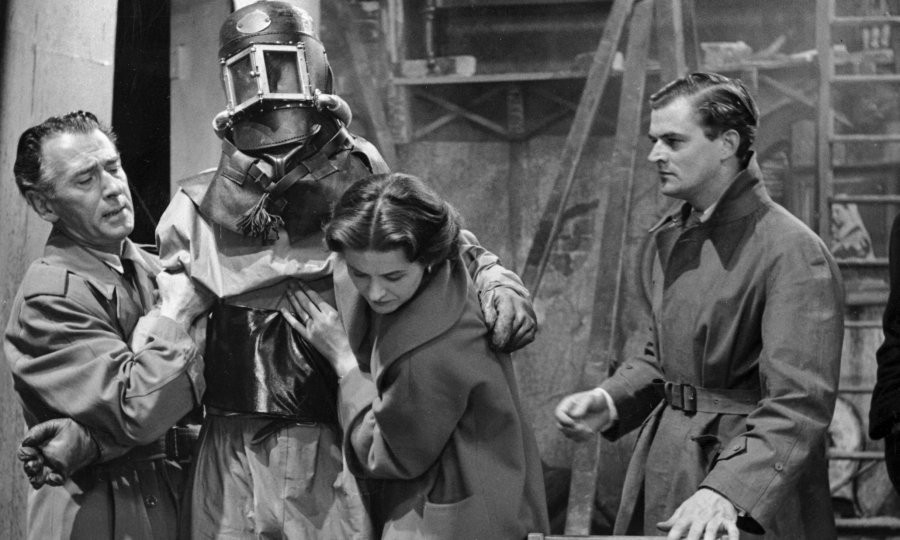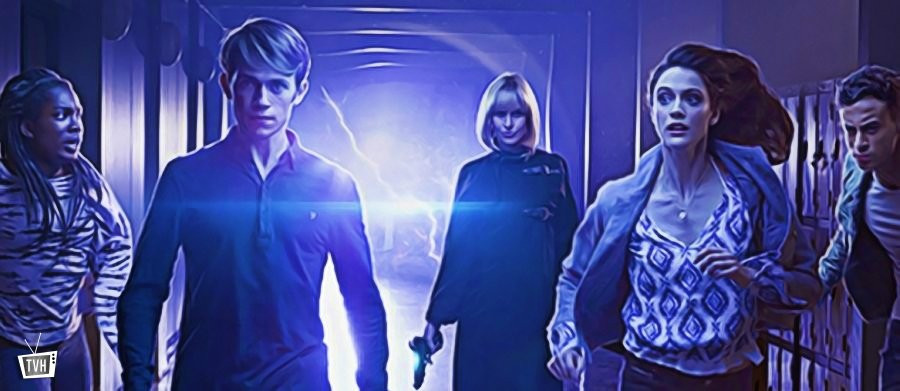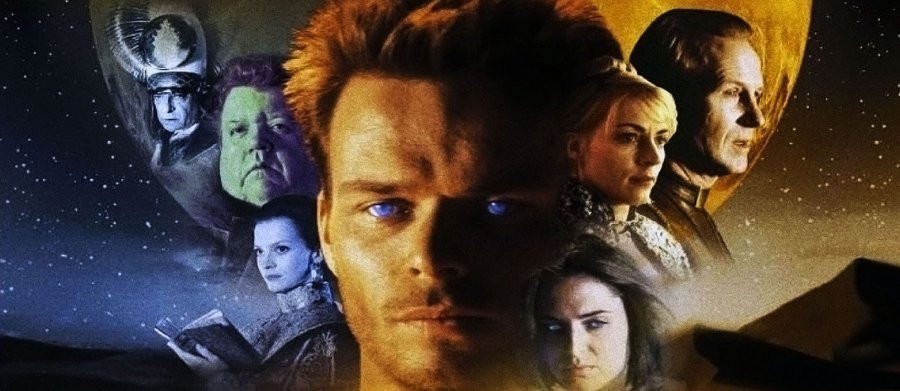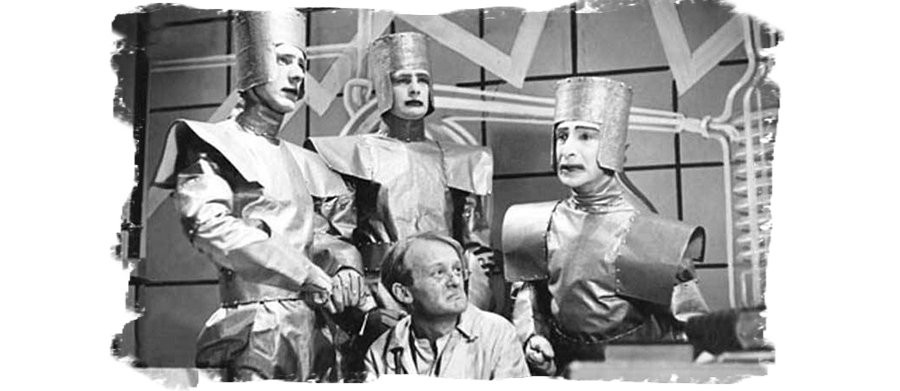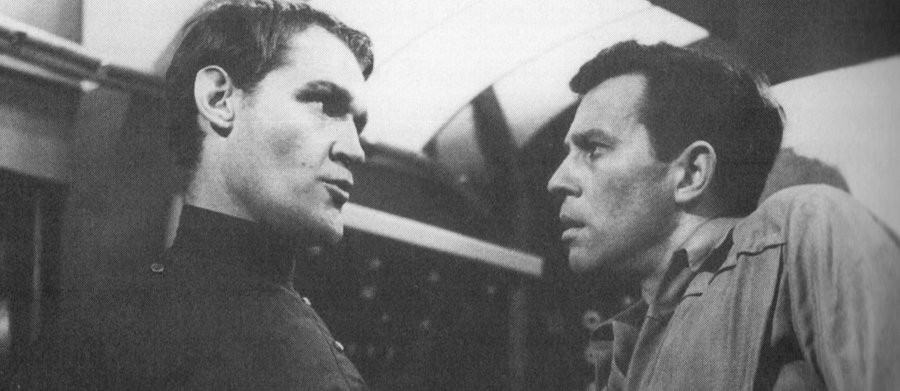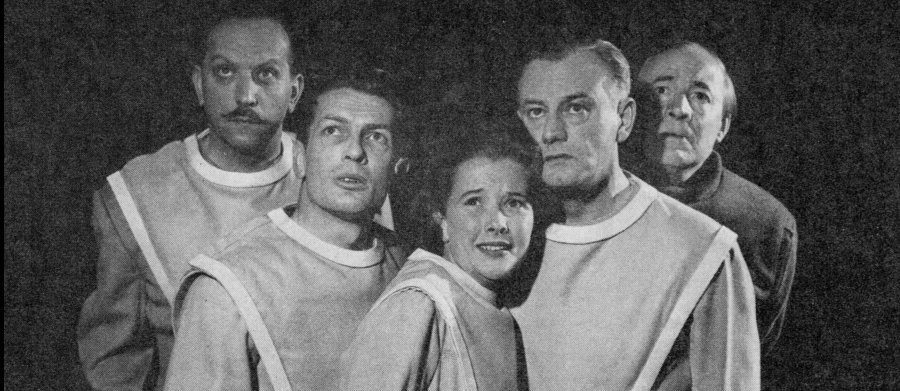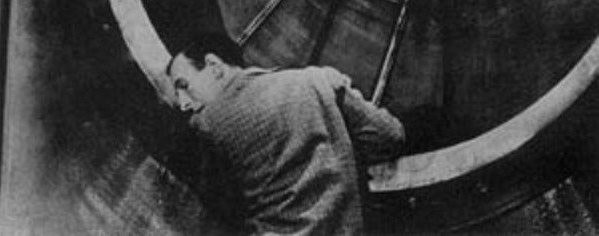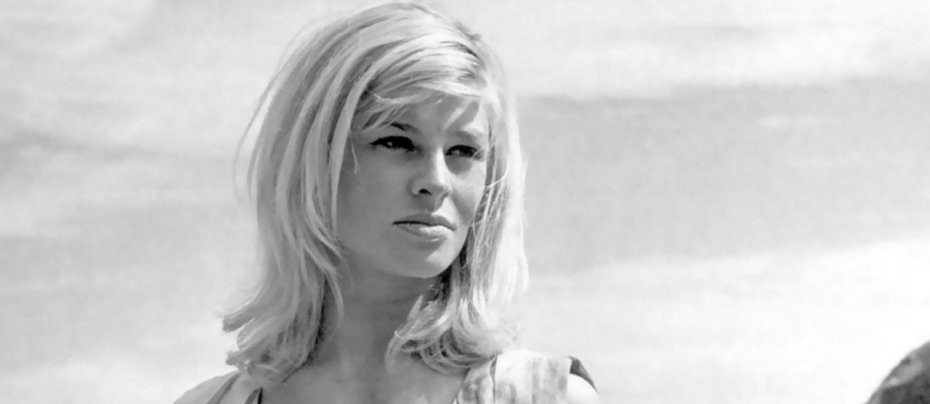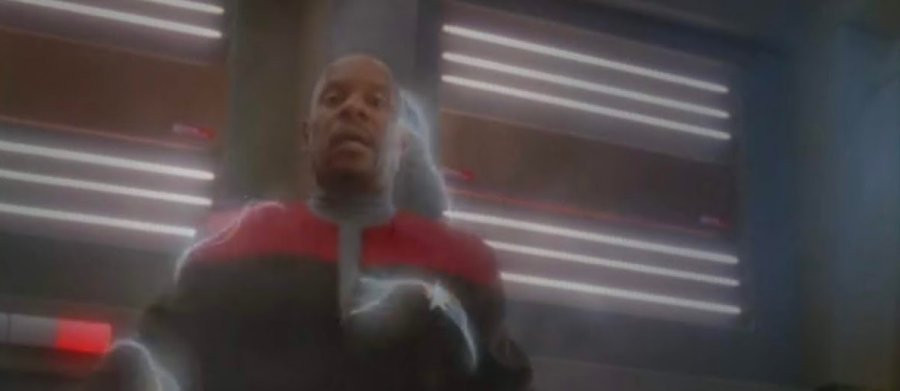
The Best Of...Star Trek: Deep Space Nine - The Visitor
Star Trek: Deep Space Nine is, arguably, the finest of the Star Trek spin-offs. With a rich array of three-dimensional characters, complex running plots and a some remarkably well-drawn alien cultures, DS9 has a depth that episodic television often lacks. One of the most admirable elements of the series is its exploration of fatherhood. Commander (later Captain) Benjamin Sisko (Avery Brooks) and his son Jake (Cirroc Lofton) share a strong and believable relationship. While Jake grows up over the course of the series, Ben fathers him alone, his wife having died during the Battle of Wolf 359 – the Borg's attack on Earth.
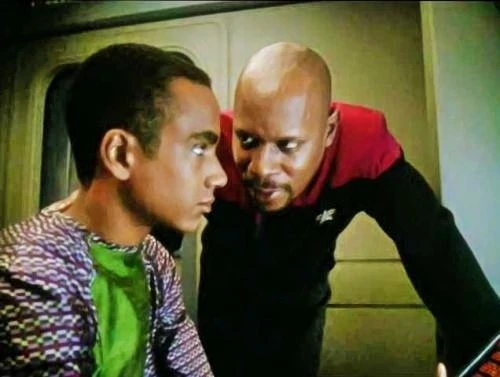
It's uncommon to find such a positive depiction of an African American father-son relationship. Black fathers are all too frequently depicted as absent or negligent on screen, something which has been slowly changing since the 1990s. DS9 was one of the few exceptions. Ben Sisko was not only the commanding officer of a huge and tactically vital space station, and not only a messianic figure to an entire planet, but also a loving and devoted father to a remarkable young man. In no episode is their relationship more beautifully illustrated than Michael Taylor's "The Visitor," the third episode of the fourth season. This is strange in a way, since Ben hardly appears in the episode. No, this episode is explicitly about his absence, and Jake's reaction to that – through his entire life.
As an episode of the Star Trek franchise, "The Visitor" naturally hangs on a science fiction premise. It sees Captain Sisko take Jake – somewhat reluctantly, as he'd rather pursue his burgeoning writing career – to witness an inversion of the Bajoran Wormhole. This, supposedly a rare and spectacular event, caused a malfunction in the warp drive of the USS Defiant, the series' resident starship. As he and Jake repair the drive, a bolt of energy strikes Ben and he vanishes, seemingly vaporised. In actuality, he has pushed into subspace – the fictional extradimensional realm that serves as a pseudoscientific explanation for all manner of strange events in the franchise. Ben is believed dead, but occasionally, inexplicably appears to Jake for a short time, before vanishing back to the other realm, where no time passes.

While this is the sort of high concept sci-fi hokum that Star Trek is notorious for, it exists only as a set-up for the powerfully emotional story that runs through it. The entire story is told in flashback, as an elderly Jake is visited by an aspiring writer who wants to know why her idol stopped writing after publishing only two books. The older Jake is portrayed by Tony Todd, already recognisable to Star Trek: The Next Generation fans as the Klingon Kurn, brother to Worf, and who would later appear on Star Trek: Voyager as a scary alien hunter. Indeed, he's best known for his intimidating hardass parts and horror roles, most famously as the eponymous Candyman. Here, though, he gives a deep and sensitive performance as a man at the very end of his life, filled with regret. He also shares a sweet chemistry with Melanie, his follower (played by Rachel Robinson, who happens to be the daughter of Andrew Robinson, the actor behind the recurring DS9 character Garak). As part of his long film and TV career, Todd is thought to have auditioned for the role of Ben Sisko – based on his performance here, you wonder why he wasn't chosen.
Jake relates his life story to Melanie, from the fateful voyage in the Defiant right up to the present day. Spanning as it does over six decades, the episode is one of the franchise's rare excursions into the 25th century, the unknown future of the Next Generation-era series. There was a roughly consistent look of this potential future era in the franchise at the time, one that has now been overwritten by the more recent series Star Trek: Picard, itself on the very cusp of the 25th century. The events shown here are very much an alternative future, with the Klingons conquering Deep Space Nine itself and an entirely different chain of events to how the series eventually played out. Ben Sisko's arc as both the commanding officer on the front lines in the Dominion War in the series' last two seasons, and his ongoing arc as the Emissary to the Prophets of the Bajoran people, presented his destiny as one of the most important people in the 24th century. It's interesting to see how differently events run with him out of the picture. Given as the Prophets exist within the wormhole and sometimes put Sisko through esoteric experiences to prepare him for his destiny, it's easy to imagine that the events here were no accident, but another test.
The episode then provides an interesting alternative view of the grand sweep of DS9's story, but its galactically important narrative was always secondary to its impact on the rich cast of characters. Jake's story in the series proper is in itself wonderful, as he moves from the assumption he'll follow in his father's footsteps to becoming an author and striking out his own path. Both Jake and his father have a destiny, and it's one that cannot run true without each other's support. As the older Jake narrates his tale, we see that he began to move on from his father's loss, writing a bestselling novel, Anslem. He goes on to begin this work later in the series, although, amusingly, we've never been given even the faintest clue what the book's about. We see him develop a rich life on Earth, settling down and getting married, until Ben reappears to him again.

It's a moving scene, where Ben gets to meet his daughter-in-law and see his son's success. But with the final confirmation that his father isn't lost, Jake commits himself to rescuing him. He gives up writing and goes back to school, studying subspace science to try to figure out how to bring Ben back from the other realm. We learn that his obsession eventually drives away his wife, leaving him with nothing in his life except his endless quest to save his father.
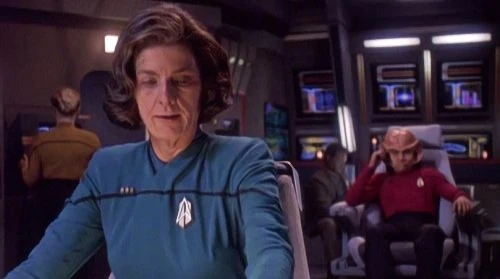
Years later, Jake works out that the best way to find his father is to recreate the original accident, and so gets the Defiant crew together to take the old ship back to the wormhole for its next inversion, fifty years after the previous one. We get to see older versions of some of our favourite characters, in some rather dodgy aged make-up. Dr. Bashir (Alexander Siddig) and Jadzia Dax (Terry Farrell) bicker like an old married couple, while Jake's best friend Nog (the late Aron Eisenberg) has gone from cadet to a captain with enough influence to authorise the mission. It works, after a fashion, sending Jake briefly to the same subspace realm as his father. Ben is devastated that Jake has given everything up for him, and implores him to go back to his passion and take up writing again.
Jake reveals that he has started, and has a pile of unpublished work for Melanie (not that she'll ever get to read it). After she leaves, we learn that Jake has finally worked out the reason for his father's repeated appearances. He and Jake were linked in the accident, with the connection snapping Ben back like elastic and then throwing him back to subspace again. Jake believes that by cutting the cord, so to speak, when his father is with him, he can snap him right back to the original accident. Ben appears, horrified that Jake has given himself a lethal injection timed for the next appearance.

It's an absolutely heartbreaking scene. A father holds his son, now twice his own age, as he dies in his arms. Jake has given up everything, even his life, to save his father from his fate. Ben is thrown back to the time of the accident, jumping out of the way of the blast just in time. The young Jake asks what happened; tearfully, Ben responds, "I guess we just got lucky this time."
It's never entirely clear how much Ben remembers of the other timeline; whether he arrives in the past with a vague understanding of what he has to do, or actually remembers his son's sacrifice. I'm glad it was never explained; revisiting would weaken the impact of the episode itself. As beautiful as the chemistry always was between Brooks and Lofton, the most powerful scenes are between Brooks and Todd, somehow convincing fully that these two men of about the same age (one later playing much older) are father and son, briefly reunited. It's a breathtaking episode, one that rightly sits perpetually in the top three for the series' in ratings. While it draws heavily on DS9's complex set-up, and brings a different perspective to it, the links are light enough that it can stand alone. It's an ideal episode to show someone who has never seen the series, relying as it does on an entirely human and relatable story, even among the sci-fi trappings.
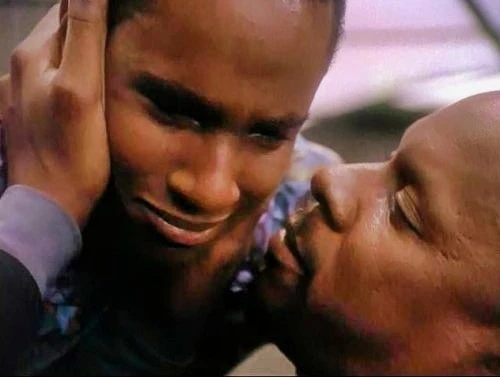
There are any number of stories that use time travel to illustrate lost love, but they invariably focus on romantic love. Making this a story about the father-son bond is a perfect example of how DS9 was different to most sci-fi series. The episode was nominated for the 1996 Hugo Award for Best Dramatic Presentation, but lost out to Babylon 5's "The Coming of Shadows" (it was robbed!) While there are other contenders for DS9's best episode (it vies with "In the Pale Moonlight," which was another strong Sisko episode co-written by Taylor), no episode of the series, indeed no episode of Star Trek, has the same emotional impact as "The Visitor." I challenge anyone to make it through without shedding a tear.
Review: Daniel Tessier
Dan describes himself as a geek. Skinny white guy. Older than he looks. Younger than he feels. Reads, watches, plays and writes. Has been compared to the third, fourth, fifth, sixth, seventh, eighth, tenth, eleventh and twelfth Doctors, and the Dream Lord. Plus Dr. Smith from 'Lost in Space.' He has also had a short story published in Master Pieces: Misadventures in Space and Time a charity anthology about the renegade Time Lord.
Dan's web page can be here: Immaterial
Published on December 2nd, 2020. Written by Daniel Tessier for Television Heaven.


